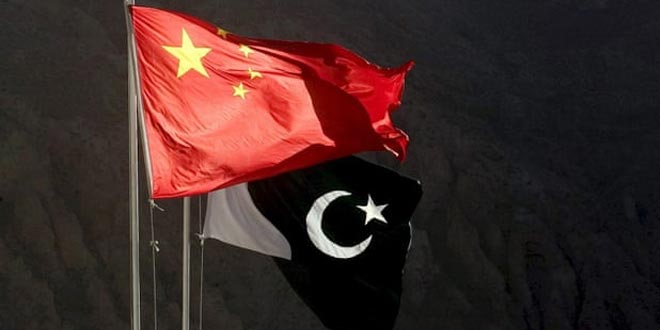Learning from Chinese experience is the need of the hour
Throughout the past, nations have strived to seek knowledge from each other. In order to enhance the society and uplift its standards, lessons from past ventures of one society proved beneficial for the others as well.
Whether it be the military tactics or economic programs, every civilization as well as nation has much to edify others. Dr. Mehbub-ul-haq, 14th minister of finance, revenue and Economic affair devised a five year development plan which was implemented by Korea and it successfully uplifted their society. Unfortunately, plan was not implemented by Pakistan. Dr. Haq also was a chief architecture of UNDP’s Human Development Index. In order to tribute Dr. Haq, UNDP established the Mehbub-ul-haq award given to world figures who contributed towards the human development progress.
Pakistan-China shares a historic affinity and brotherly bond, which has poured the baskets for each country. Pakistan was benefited from its neighbor in various modules whether it is diplomatic or economic. CPEC is one of those modules that is proving to be a table turner in favor of Pakistan.
However, the question here rises is that is CPEC all in all the bond or there are more avenues which can be explored in order to overcome the socio-economic challenges which Pakistan is facing? What Pakistan can get from the experience of China in order to find solutions to its maladies?
Since the new government got the throne in July of 2018, it met with new challenges. The foremost challenge was to boost the living standards of base. Government is still staggering to vanquish these challenges. Prime minister Imran Khan seems to be desperate and promising in order to move these stumbling blocks. In order to coup-up with the world dynamics Pakistan needs robust progress in its social sector.
Chinese progress graph is not obscured to anyone. Country which seemed no where in the economic realms back in 20th century is now leading in the 21st. China had overcame all the challenges to its social and economics and became what it is today. The country, which had GDP of merely $200 billion in 1980, crossed up to more than $12 Trillion in 2017.
Pakistan after a long wait is now looking to be in right path from where it was once shattered by the terrorism and security threats it is now getting up on its knees. However, it needs proper plan to reform the society and to do so it can take help from the Beijing. In order to become self-sufficient, Pakistan needs to improve every sector in a self-reliable manner where it then continues to grow by itself. In order to do that Pakistan needs to invest in human capital like Chinese did.
Jointly Pakistan and China can cooperate other than CPEC to enhance the societal structure or even under the CPEC, measurements can be taken to uplift the social progress. Through youth engagement programs and giving them vocational training under the expertise of Chinese, things can turn into our favor.
Collaboration in educational sector, which is already happening, but will be more helpful if Chinese top ranking university operate here so that the young populous can have and experience the education standard other than their own to be more productive. Economic survey of Pakistan showed that literacy rate in Pakistan is just 58% in 2018. Whereas China’s literacy rate is, near to absolute. Hence, 95% literate population is contributing towards the building of society. This all happened not just because of having large number of universities but because of educational engagements other than the academic ones such as vocational training, capacity building, youth engagement and many more.
Pakistan has a great room for improvements in social strata. It can utilize the help of China to improve it and empower its populous. In order to carve a prosperous nation out of population, Pakistan needs to improve the base level population standards.
Chinese Ambassador highlights significance of Third Plenary Session for China-Pakistan cooperation
The Third Plenary Session of the 20th Central Committee of the Communist Party of China ha…











